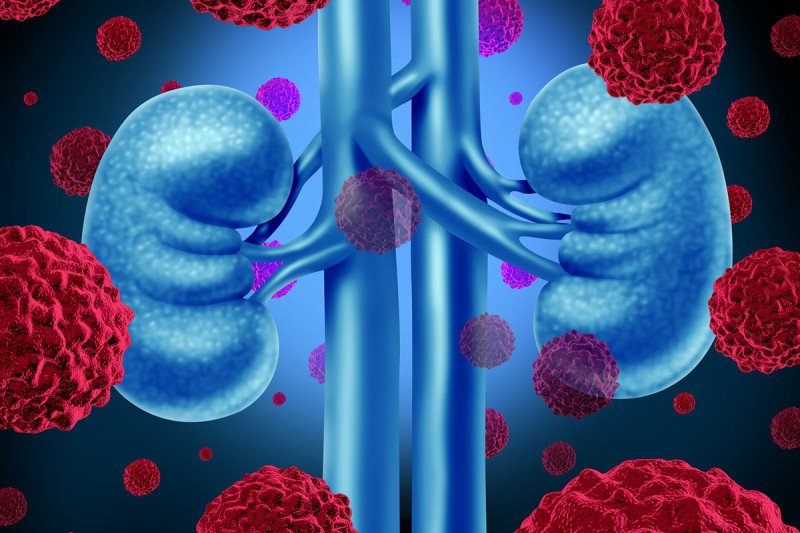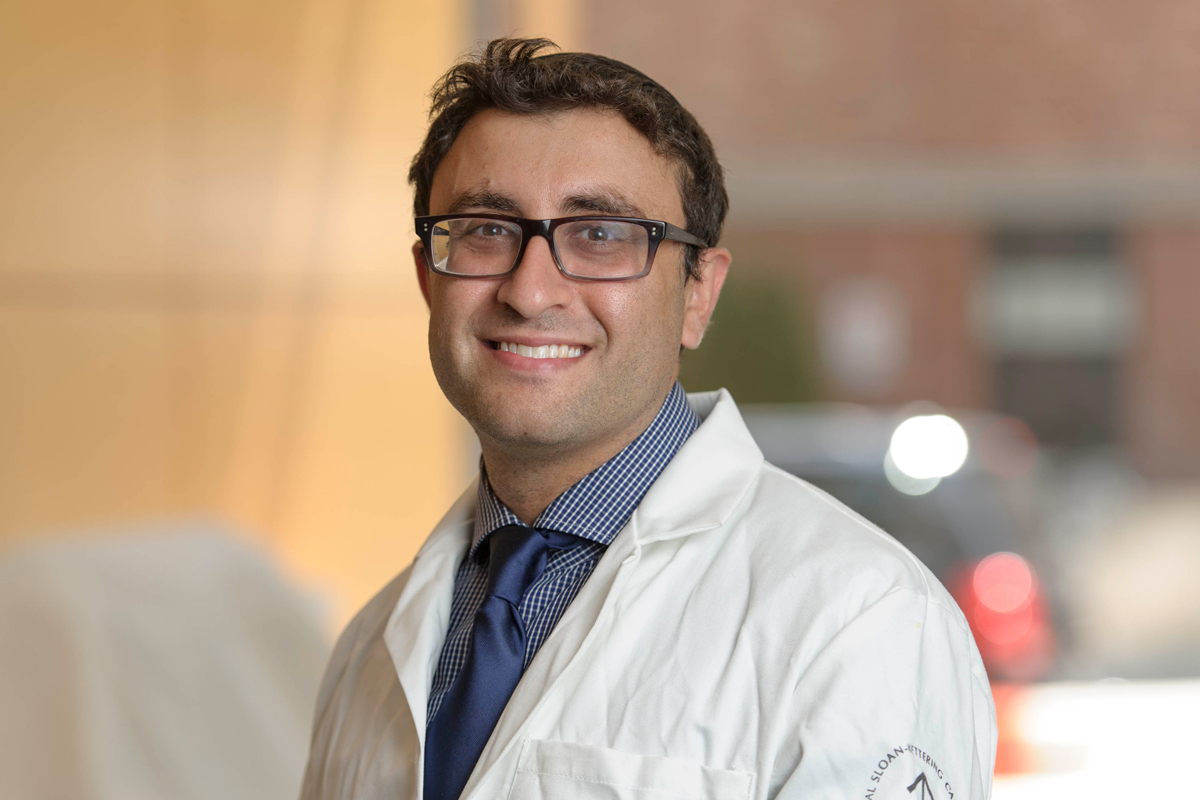
Kidney cancer specialists have long been puzzled by the disease’s odd relationship to obesity. Although obese people are at increased risk for developing the cancer, they also have better odds than non-obese people of surviving the disease.
Memorial Sloan Kettering researchers have studied this phenomenon, known as the obesity paradox, for years. In 2014, a team led by epidemiologist Helena Furberg and urologic oncology surgeon Ari Hakimi found that tumors in obese people may grow slower because they have less activity in a cancer-promoting gene. This would make them more likely to be detected earlier, improving the person’s odds of survival.

But even in late-stage, metastatic kidney cancer, tumors in obese people seem to respond better to treatment. In 2016, Dr. Hakimi was part of a team that published results showing that obese people with kidney cancer have better outcomes after receiving drugs that interfere with a tumor’s ability to grow blood vessels. Other research has shown these individuals also respond better to immunotherapy.
Now, Dr. Hakimi and colleagues have found a possible explanation for this paradox: fat tissue surrounding kidney tumors plays a critical role in how well a treatment works. This fat is highly inflamed, which draws immune cells to the site of the tumor to attack it.
What made the discovery especially intriguing is that the kidney tumors themselves do not seem to be stimulating this kind of immune-system attack. Tumors that respond well to immunotherapy typically are “hot,” meaning they are infused with immune T cells. When tumors contain a lot of immune cells, it indicates that the body recognized the cancer as a threat and mounted a response. But when the researchers examined kidney tumor samples from obese patients, they were surprised to find that the tumors lacked this immune cell infiltration — they were “cold.”
“This shows that it’s not as simple as just looking at the tumor,” Dr. Hakimi says. “You have to factor in other components, specifically the surroundings of the tumor.”
The findings are reported in Lancet Oncology.
The Tumor-Fat Interface
Researchers have increasingly recognized the importance of the tumor microenvironment (the noncancerous cells surrounding the tumor) in sustaining tumors. Recently, the MSK team began studying fat samples taken for research purposes from patients undergoing surgery for clear cell kidney cancer, the most common form of the disease. In each patient, the fat samples were taken from around the kidneys and from distant sites.
They found that the fat in obese people is qualitatively different — denser and significantly more inflamed than in non-obese people. In addition, the researchers discovered that the fat surrounding a patient’s tumor is more inflamed than fat elsewhere in the body.
“We are wondering if something important is going on in the interface between the fat and the tumor,” Dr. Hakimi explains. “Is there some kind of interaction that causes an enrichment of certain immune cells in the area?”
He says one important goal is to see if this discovery can yield a biomarker that can be used to determine if a patient is likely to respond well to immunotherapy or other treatments. They also want to get a clearer understanding of which specific type of immune cells are infiltrating the fat.
“We want to understand all the components that are involved, and why certain immune cells seem to be essential to the success of immunotherapy for kidney cancer,” he says. “Why are these immune cells going only to the fat and not getting to the tumor?”
The other aim is to look at dietary interventions — how body weight could impact treatment response. There is an emerging scientific concept that there are “metabolically healthy” and “unhealthy” types of obesity, and researchers want to understand if there could be an ideal weight for cancer patients.
Dr. Hakimi says the findings were made possible in large part by the synergy between MSK’s clinical work and research specialties such as immunology and computational biology.
“I love that this work brings together these two really interesting fields of epidemiology and immunology — looking at molecular mechanisms for what’s observed in certain populations,” he says. “It’s nice to be at the forefront of that in kidney cancer.”




